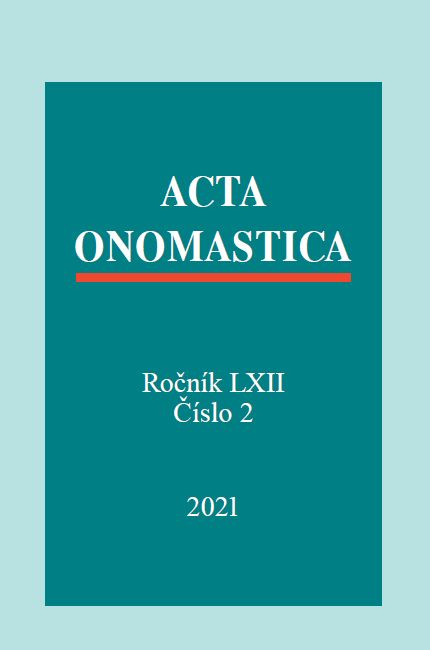„Půda cizí, ale řeč ještě naše“ ‒ anoikonymie tzv. Českého koutku
“Foreign soil, our language” ‒ anoikonyms of the so-called Czech Corner
Author(s): Martina PtáčníkováSubject(s): Sociolinguistics
Published by: AV ČR - Akademie věd České republiky - Ústav pro jazyk český
Keywords: toponymy; folk etymology; Czech Corner; Poland; Germany
Summary/Abstract: The Czech Corner (Cz. Český koutek, Ger. Böhmischer Winkel) refers to a territoryfound in what is now modern Poland. Despite its location and the fact that it had constitutedpart of Germany until 1945, the territory shares geographical, historical, ethnicand linguistic ties with the Czech lands. Until the end of the Second World War, the area,which consists of 11 villages, had predominantly been populated by ethnic Czechs.This study is the first outcome of our research into the toponymy of the CzechCorner. It seeks to collect as many names that used to be used by the Czech inhabitantsof the area in question as possible, as well as to analyse such collected names in semanticand formal terms. Additionally, the objective is to investigate how these nameschanged over time as well as their ties with foreign language anoikonyms including,but not limited to, German anoikonyms. The aims of the research also include sheddinglight on how the landscape of the Czech Corner used to be perceived and interpretedby its previous inhabitants as well as exploring the ways in which the localanoikonyms are tied with the ethnic and national identity of those who created andused them.This study focuses primarily on the names of those parts of the villages in questionthat have their own names identifying them. A total of 40 such names have beencollected including e.g. Ráj (Paradise), Ve voleti (Bird’s Crop), V krku (Bird’s Neck),V huse (Goose Belly) and Dvanáct apoštolů (Twelve Apostles).
Journal: Acta Onomastica
- Issue Year: 62/2021
- Issue No: 2
- Page Range: 404-418
- Page Count: 15
- Language: Czech

